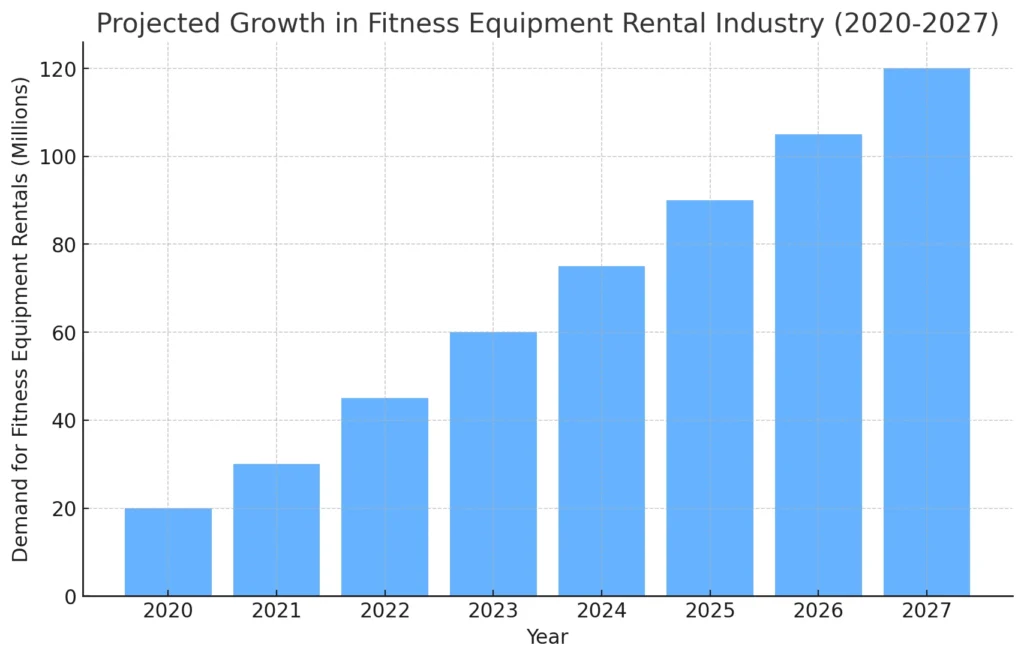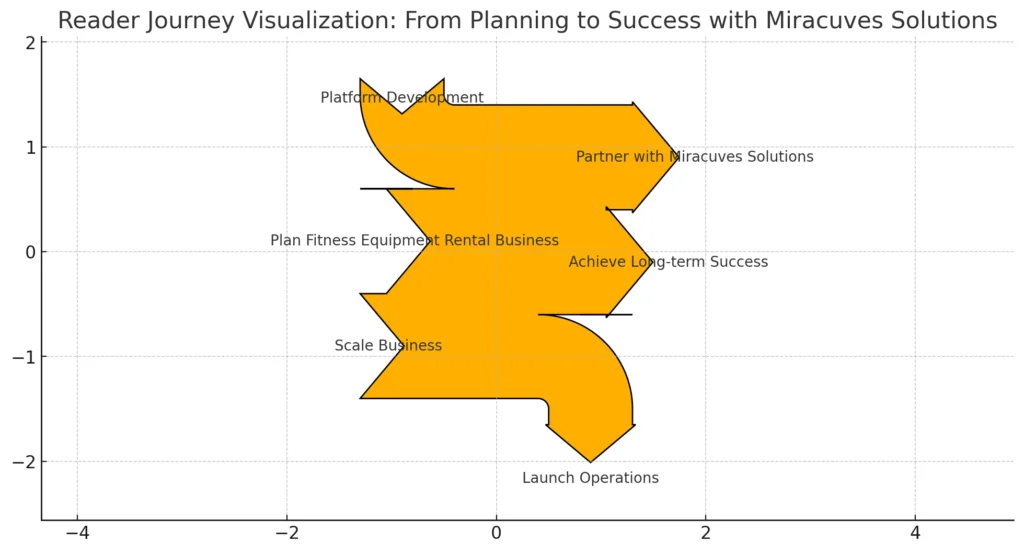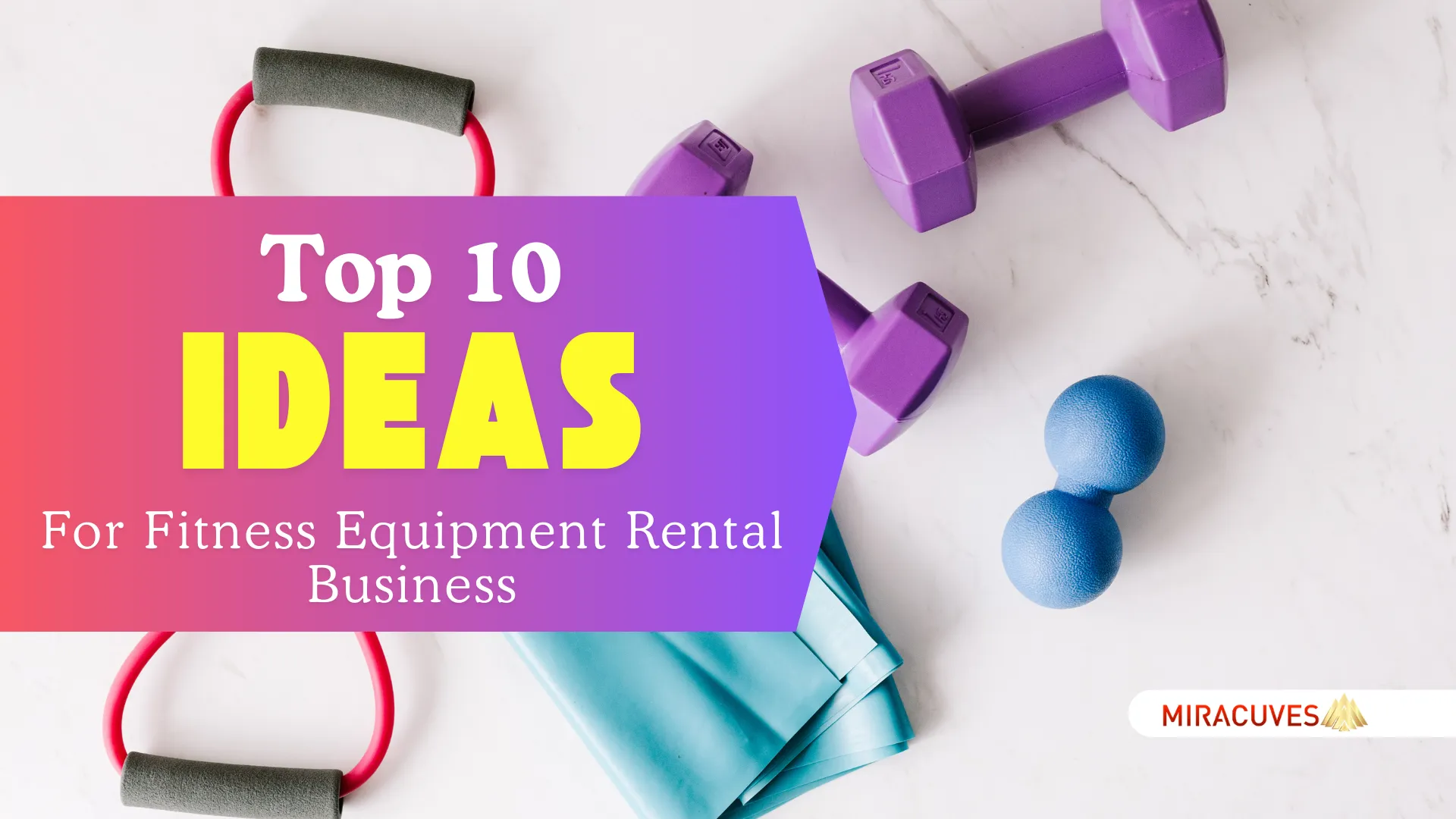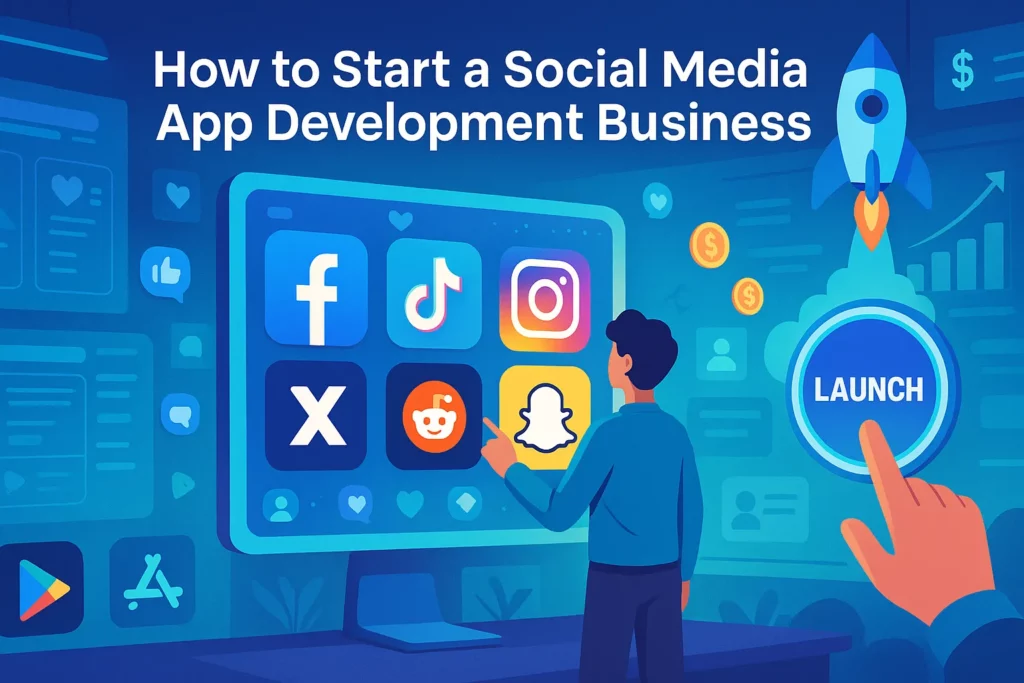In today’s world, fitness has become more accessible than ever, with people looking for flexible, cost-effective ways to maintain their workout routines. The fitness equipment rental industry is booming, providing an ideal solution for individuals who want to stay active without the high cost of purchasing equipment. Renting equipment allows customers to access high-quality fitness tools—from treadmills and exercise bikes to weights and smart gym systems—on their own terms, creating a win-win for both consumers and business owners.
This growing market is fueled by several factors. Fitness enthusiasts appreciate the flexibility of trying different equipment types before committing to a purchase, while others prefer the cost savings and convenience that rentals offer. Additionally, with the rise in home workouts and the popularity of personal fitness setups, more people are seeking ways to achieve gym-quality workouts without leaving their homes.
Starting a fitness equipment rental business taps into these trends, offering a low-barrier entry into the fitness industry with potential for steady, recurring revenue. This article explores the ideas for launching a fitness equipment rental startup, each tailored to meet the diverse needs of fitness consumers. Whether you’re looking to serve gym-goers, at-home workout fans, or businesses, there’s a niche opportunity waiting for you in this dynamic market.
Read More “How to Build an App Like PlushCare: A Step-by-Step Guide“
Current Trends and Future Opportunities in Fitness Equipment Rental
The fitness equipment rental market is evolving to meet the needs of today’s fitness-conscious and tech-savvy consumers. With changing lifestyles and a shift towards more flexible workout options, this industry is experiencing exciting trends that offer new opportunities for business owners.

1. High Demand for Versatile Equipment
People are looking for equipment that can support various workout styles, from cardio machines like treadmills and bikes to strength-building tools like dumbbells and resistance bands. As fitness goals vary from weight loss to muscle gain and endurance, the demand for a range of equipment remains high. Offering a variety of equipment ensures your rental business can cater to all fitness levels and goals.
2. Rise of Smart and Connected Equipment
With advancements in technology, smart fitness equipment has become incredibly popular. Devices like smart treadmills and stationary bikes with integrated screens and app connectivity allow users to track their progress, follow guided workouts, and even participate in virtual fitness classes. Businesses that include smart equipment in their rental offerings can attract tech-savvy clients who appreciate a personalized workout experience.
3. Preference for Short-Term Rentals
More consumers are opting for short-term rentals, allowing them to try out different equipment types without long-term commitment. Short-term rentals also appeal to individuals who only need equipment for specific time frames, such as during a fitness challenge or a training program. Offering flexible rental terms is a key trend that aligns with customer needs and can boost your business’s appeal.
4. Focus on Hygiene and Maintenance
Since the pandemic, hygiene has become a top priority for customers. Businesses that prioritize equipment cleaning, maintenance, and transparency in hygiene practices can set themselves apart from competitors. Providing sanitized, well-maintained equipment builds customer trust and encourages repeat business.
5. Increasing Popularity of Corporate Wellness Programs
As more companies prioritize employee wellness, some are looking to rent fitness equipment for their corporate offices or as part of remote work perks. Businesses offering corporate rental packages can tap into this trend by supplying equipment to companies focused on promoting a healthy work-life balance for their employees.
With the rise of smart fitness equipment, more customers are seeking advanced workout solutions that provide interactive features and progress tracking. Offering tech-enabled gear like smart treadmills and connected exercise bikes allows rental businesses to attract tech-savvy clients and keep up with evolving fitness trends.
| Trend | Impact on Market | Opportunity for Rental Business |
|---|---|---|
| High Demand for Versatile Equipment | Broad customer appeal | Offer a variety of equipment for all fitness goals |
| Rise of Smart and Connected Equipment | Attracts tech-savvy fitness enthusiasts | Include smart machines with app connectivity |
| Short-Term Rental Preference | Flexible workout options for consumers | Provide weekly or monthly rental options |
| Hygiene and Maintenance Focus | Builds trust and customer loyalty | Prioritize equipment cleaning and transparency |
| Corporate Wellness Rentals | Access to a larger, steady customer base | Offer packages for businesses and remote teams |
Top 10 Ideas for Fitness Equipment Rental Business Startups
| Business Idea | Startup Cost Range | Target Market | Profit Potential |
|---|---|---|---|
| Home Gym Equipment Rentals | Medium | Home fitness enthusiasts | High |
| Smart Fitness Equipment Rentals | High | Tech-savvy users | Very High |
| Short-Term Fitness Challenge Rentals | Low to Medium | Fitness challenge participants | Moderate to High |
| Corporate Fitness Rentals | Medium | Corporate offices | High |
| Event-Based Fitness Rentals | Medium | Event organizers | Moderate |
| Outdoor Fitness Equipment Rentals | Low to Medium | Outdoor fitness groups | Moderate to High |
| Subscription-Based Personal Training | Medium | Dedicated fitness subscribers | High |
| Rehabilitation Equipment Rentals | Low to Medium | Rehab patients | Moderate |
| Seasonal Fitness Rentals | Medium | Resolution-driven customers | Moderate |
| Wearable Fitness Tech Rentals | Medium | Health-conscious tech users | High |
1. Home Gym Equipment Rentals
Rent out complete home gym setups with essentials like dumbbells, resistance bands, benches, and kettlebells. This service caters to individuals wanting a flexible gym experience without purchasing bulky equipment.
- Target Market: Home fitness enthusiasts and beginners
- Estimated Costs: Medium (varied equipment inventory)
2. Smart Fitness Equipment Rentals
Offer smart fitness devices, including high-tech treadmills, stationary bikes, and rowing machines with digital connectivity for guided workouts and progress tracking.
- Target Market: Tech-savvy users and urban professionals
- Estimated Costs: High (investment in smart machines)
3. Short-Term Fitness Challenge Rentals
Provide equipment packages tailored for fitness challenges, like 30-day or 6-week boot camps, allowing customers to rent specific items based on the workout program.
- Target Market: Individuals joining fitness challenges
- Estimated Costs: Low to Medium (rotating equipment for short-term use)
4. Corporate Fitness Rentals
Supply fitness equipment for office wellness programs, allowing employees to use high-quality workout gear at work or as part of remote work perks.
- Target Market: Corporate offices and remote teams
- Estimated Costs: Medium (equipment packages for corporate use)
5. Event-Based Fitness Rentals
Rent out fitness equipment for special events like sports tournaments, community fitness festivals, or wellness expos.
- Target Market: Event organizers and community centers
- Estimated Costs: Medium (temporary high-demand inventory)
6. Outdoor Fitness Equipment Rentals
Provide equipment suited for outdoor workouts, such as kettlebells, battle ropes, and portable benches, catering to those who prefer exercising in open spaces.
- Target Market: Outdoor fitness groups and personal trainers
- Estimated Costs: Low to Medium (portable equipment)
7. Subscription-Based Personal Training Equipment
Create a subscription model where customers receive personalized equipment setups based on their fitness goals, along with monthly exchanges for new items as their training evolves.
- Target Market: Dedicated fitness users and subscribers
- Estimated Costs: Medium (personalized setups and exchanges)
8. Rehabilitation Equipment Rentals
Focus on equipment like resistance bands, lightweight weights, and stability balls for individuals recovering from injuries or surgeries. This niche caters to people seeking gradual, at-home recovery.
- Target Market: Rehab patients and elderly users
- Estimated Costs: Low to Medium (specialized rehab equipment)
9. Seasonal Fitness Rentals
Offer seasonal rentals for equipment that aligns with common fitness resolutions, such as cardio machines in January or outdoor gear in spring and summer.
- Target Market: Resolution-driven customers and seasonal users
- Estimated Costs: Medium (seasonal high-demand inventory)
10. Wearable Fitness Tech Rentals
Rent wearable fitness trackers, heart rate monitors, and smartwatches for users interested in tracking their progress and health stats without buying expensive devices.
- Target Market: Health-conscious tech users and athletes
- Estimated Costs: Medium (wearable devices)
Read More “Top 10 Ideas for Event Equipment Rental Business Startups – Complete Guide“
Real-World Examples
The fitness equipment rental industry has proven itself to be a versatile and profitable sector with real-world examples that highlight how different business models can meet diverse customer needs. Here are a few success stories that show the potential of this growing market.
1. Subscription-Based Equipment Rentals
One popular model is subscription-based rentals, where customers pay a monthly fee to receive a curated selection of fitness equipment tailored to their workout goals. Companies offering this model attract a steady stream of subscribers who appreciate the convenience of having fresh equipment delivered to their doorsteps each month. This approach not only keeps users engaged with their fitness journey but also creates consistent revenue through renewals.
2. Event and Corporate Fitness Rentals
Some businesses focus on providing fitness equipment rentals for events and corporate wellness programs. By catering to companies that want to support their employees’ health and wellness goals, these businesses establish long-term relationships with corporate clients. This model allows them to secure high-volume rentals, especially for events such as company retreats, wellness days, and fitness challenges, which require a large quantity of equipment.
3. Wearable Tech and Smart Equipment Rentals
With the rise of smart technology in fitness, rental businesses specializing in wearables and smart gym equipment have found success by offering products like fitness trackers, heart rate monitors, and smart treadmills. These rentals appeal to customers who want access to the latest technology without committing to a purchase. The wearables market is especially popular among health-conscious users who enjoy tracking their fitness data and progress.
4. Short-Term Challenge Rentals
Some businesses have capitalized on the trend of short-term fitness challenges, offering equipment packages designed for 30-day or 6-week challenges. These rentals provide customers with specific gear tailored to their challenge program, such as resistance bands, dumbbells, or yoga mats. This model works particularly well for customers who want temporary access to equipment to complete a structured program without the need for a long-term rental.
5. Rehabilitation and Recovery Equipment Rentals
Catering to those recovering from injuries, some businesses have carved out a niche in rehabilitation equipment rentals. These companies focus on items like resistance bands, stability balls, and lightweight weights to help individuals rebuild strength and mobility. This model has proven effective for reaching a customer base that may not typically seek traditional fitness equipment but values guided, recovery-focused solutions.
| Business Model | Success Rate (%) | Common Challenges |
|---|---|---|
| Subscription-Based Rentals | 85% | Inventory management |
| Event and Corporate Fitness Rentals | 80% | Managing large orders and logistics |
| Wearable Tech and Smart Equipment | 78% | Keeping up with tech advancements |
| Short-Term Challenge Rentals | 82% | Customer retention post-challenge |
| Rehabilitation Equipment Rentals | 75% | Reaching target demographics |
Mistakes to Avoid When Starting a Fitness Equipment Rental Business
Launching a fitness equipment rental business can be highly rewarding, but like any venture, it comes with its share of challenges. Avoiding common mistakes will help ensure a smooth start and long-term growth for your business.
1. Inadequate Inventory Planning
One of the biggest pitfalls is not having a well-thought-out inventory plan. Having too much or too little equipment can hurt your business—overstocking ties up capital, while understocking can lead to missed opportunities. Conduct market research to understand demand for specific equipment types, and start with a balanced inventory that allows for flexibility as demand changes.
2. Neglecting Maintenance and Hygiene Standards
Fitness equipment experiences regular wear and tear, so skipping on maintenance and hygiene can lead to dissatisfied customers. Make it a priority to inspect, clean, and sanitize all rental items between uses. Proper maintenance not only ensures customer satisfaction but also extends the life of your equipment, saving costs in the long run.
3. Poor Customer Service
Excellent customer service is essential in the rental industry. Customers expect timely responses, flexible rental terms, and clear communication. Failing to meet these expectations can damage your reputation and result in lost clients. Develop a strong customer service policy that prioritizes communication, flexibility, and responsiveness to keep customers happy and coming back.
4. Lack of Clear Pricing and Rental Terms
Transparency in pricing and rental policies is crucial. Customers should have a clear understanding of rental fees, deposit requirements, late return penalties, and other terms before they commit. Unclear or complex pricing structures can lead to misunderstandings and frustration. Simplify your pricing and clearly display terms on your website or rental agreements.
5. Ignoring Marketing and Brand Presence
Assuming word-of-mouth alone will build your business is a common mistake. In today’s digital age, a strong online presence is necessary to attract clients. Invest in social media, create a user-friendly website, and showcase your equipment offerings with high-quality photos. Regularly engage with customers through digital channels to keep your business top-of-mind.
Utilizing project management tools can streamline operations by helping manage equipment maintenance schedules, track customer orders, and coordinate logistics. Staying organized with these tools minimizes errors and ensures smooth service, ultimately improving customer satisfaction and operational efficiency.
| Mistake | Impact on Business | Solution |
|---|---|---|
| Inadequate Inventory Planning | Missed rental opportunities or overstocking | Conduct market research and adjust inventory |
| Neglecting Maintenance and Hygiene | Customer dissatisfaction | Set a strict maintenance and cleaning schedule |
| Poor Customer Service | Lost clients and poor reviews | Establish a responsive customer service policy |
| Lack of Clear Pricing and Terms | Misunderstandings and lost sales | Make pricing and terms transparent and simple |
| Ignoring Marketing and Brand Presence | Limited visibility and client reach | Invest in online marketing and brand development |
Why Trust Miracuves Solutions for Your Next Project?
Launching and growing a fitness equipment rental business requires the right technology and operational support. Miracuves Solutions provides the expertise, tools, and industry insight to help you build a business that thrives in the fitness market. With a focus on efficiency, scalability, and customer experience, Miracuves is the ideal partner for setting up and managing a successful rental business.

1. Customized Rental Management Platforms
Miracuves Solutions offers customized platforms tailored to the unique needs of equipment rental businesses. From inventory management and customer reservations to payment processing, their systems simplify every step of your operations. This helps you stay organized, provide seamless service, and maintain high customer satisfaction.
2. Fast Development and Cost-Effective Solutions
Launching your business quickly is essential to capturing market demand. Miracuves Solutions provides a fast development process that’s 30 times faster than industry standards, getting your business off the ground sooner. Additionally, Miracuves offers these advanced solutions at 10% of the global average cost, allowing you to access high-quality technology without overextending your budget.
3. Scalable Technology for Growing Businesses
As your business grows, Miracuves ensures that your platform grows with it. Their technology is designed to handle increased customer demand, new equipment types, and expanding services. With scalability built-in, you can focus on expanding your offerings and reaching more clients without worrying about outgrowing your systems.
4. Ongoing Support and Upgrades
Miracuves Solutions provides ongoing technical support to ensure your business runs smoothly, along with regular upgrades to keep you ahead of industry trends. Whether it’s improving your platform’s functionality or adding new features, Miracuves helps your business stay competitive and customer-focused.
Conclusion
The fitness equipment rental business offers a promising venture for entrepreneurs ready to tap into a growing market. With more people seeking flexible, affordable ways to achieve their fitness goals, this industry is set to thrive in the coming years. Whether it’s smart fitness equipment, short-term rentals for fitness challenges, or specialized corporate wellness packages, the potential for growth and profitability is immense.
Building a successful business in this field requires careful planning, attention to customer service, and staying attuned to market trends. By focusing on quality equipment, transparent pricing, and excellent maintenance, you can create a rental business that attracts loyal customers and generates steady income. Partnering with technology providers like Miracuves Solutions can further enhance your operations, ensuring you’re equipped with the tools needed to scale as demand grows.
With a well-thought-out approach, a focus on customer satisfaction, and a commitment to delivering convenience, your fitness equipment rental business can become a reliable source of income and a valuable resource for fitness enthusiasts everywhere.
FAQs
What is the initial cost to start a fitness equipment rental business?
The startup cost varies depending on your inventory and target market. A small-scale business might start with $5,000 to $10,000, while a more extensive setup could require $20,000 or more to invest in a diverse range of high-quality equipment.
How can I maintain my fitness equipment to ensure quality?
Regular maintenance and cleaning are essential to prolong the life of rental equipment. Set a strict schedule for equipment inspections, repairs, and sanitization between rentals. Well-maintained equipment not only ensures customer satisfaction but also reduces long-term costs.
What types of equipment are in high demand for rentals?
Cardio machines like treadmills, stationary bikes, and rowing machines are popular choices. Additionally, strength training items such as dumbbells, resistance bands, and kettlebells are always in demand. Offering a variety ensures you meet diverse fitness needs.
How can I attract customers to my rental business?
A strong online presence is key. Use social media to showcase your equipment and offer promotions for first-time renters. Partnering with local gyms, wellness centers, and fitness influencers can also help spread the word and build your customer base.
What challenges should I prepare for in this business?
Common challenges include managing inventory, ensuring timely maintenance, and keeping up with customer demands. Clear rental terms, responsive customer service, and efficient logistics can help overcome these issues and keep operations smooth.







